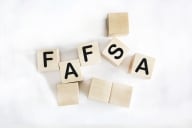You have /5 articles left.
Sign up for a free account or log in.
It’s a discussion that started over beer and chips and grew into a blog post now grabbing attention in higher education circles: Do asses do better in academe than their more tactful peers?
“All of us had a story or two to tell about academic colleagues who had been rude, dismissive, passive aggressive or even outright hostile to us in the workplace,” Inger Mewburn, director of research training at Australian National University, wrote in a recent post called “Academic Assholes and the Circle of Niceness” for her popular blog, The Thesis Whisperer. “As we talked we started to wonder: Do you get further in academe if you are a jerk?”
She continues: “I assume people act like jerks because they think they have something to gain, and maybe they are right…. Cleverness is a form of currency in academia; or ‘cultural capital’ if you like. If other academics think you are clever they will listen to you more; you will be invited to speak at other institutions, to sit on panels and join important committees and boards. Appearing clever is a route to power and promotion. If performing like an asshole in a public forum creates the perverse impression that you are more clever than others who do not, there is a clear incentive to behave this way.”
Mewburn, whose 2-year-old blog is dedicated to minimizing attrition among Ph.D. students, said in an e-mail interview that she was inspired to write the piece in part by reading The No Asshole Rule: Building a Civilized Workplace and Surviving One That Isn't by Bob Sutton, a professor of management science and engineering at Stanford University. The book shed light on a difficult interpersonal dynamic at her previous institution, she said, “because up until then I had been trying to work out what I was doing wrong, how I had offended these people. I realized they were acting like assholes, not me.”
The idea is resonating with academics across the Internet; the post has generated more than 100 comments and has been shared thousands of times on Facebook, Twitter and other blogs. Ph.D. students in particular have responded to Mewburn’s observation that faculty jerks can use research critiques more as an opportunity to display their own academic prowess to each other – sometimes cruelly – than to examine the candidate’s work.
“Thanks for this; I’m a Ph.D. candidate who just got the true asshole treatment from a senior faculty member while doing a public presentation to recruit participants for a research study,” one student commented. “I guess the lab coat in a room of people casually dressed should have given away his status immediately…. Just wanted to let you know this post helped me deal with ‘why’ he was an ass. I don’t have any suggestions for how to make academia a kinder place, but hopefully if more people try to understand the reasons underlying negative behaviors, a cultural shift can take place.”
Certain disciplines or academic “cultures” are worse than others, Mewburn argues, citing her own background – architecture – as one where “vicious critique” is normalized. Mewburn also uses her own career as a case study for why nice people don’t always get ahead.
“I have quality research publications and a good public profile for my scholarly work, yet I found it hard to get advancement in my previous institution,” she wrote. “I wonder now if this is because I am too nice and, as a consequence, people tended to underestimate my intelligence. I think it’s no coincidence that my career has only taken off with this blog. The blog is a safe space for me to (show off) display my knowledge and expertise without having to get into a pissing match.”
Mewburn, who's been working at Australian for three weeks, also cites research supporting the idea that mean guys finish first, including Teresa Amabile’s famous 1983 publication, “Brilliant but Cruel: Perceptions of Negative Evaluators." In that study, negative evaluators of books were perceived as more intelligent, competent and expert than positive evaluators, even when the content of the positive review was independently judged as being of higher quality.
Amabile, now a professor at Harvard Business School and author of The Progress Principle, said in an e-mail that the “negativity bias” still broadly applies to both business and higher education, and that she’d come up with the study concept by observing that at academic colloquiums, seminars and workshops, the most harshly critical questions often were posed by the “lowest-status people” in the audience: doctoral students and junior professors. (In her piece, Mewburn also observes that hostile behavior often is displayed by those “lower in the pecking order.”)
“I think the mechanism could be a simple one,” Amabile said. “If I’m able to poke holes in what you think and what you say, I must be smarter and more insightful than you are.”
Although Mewburn spends much of the post describing how nasty behavior can advance one’s academic career, she argues that, in the end, the phenomenon hurts institutions because talented but polite people leave.
“Ultimately we are all diminished when clever people walk away from academia,” she wrote. “So what can we do? It’s tempting to point the finger at senior academics for creating a poor workplace culture, but I’ve experienced this behavior from people at all levels of the academic hierarchy. We need to work together to break the circle of nastiness.”
Amabile agreed that the cycle needs to be broken, for other reasons. “Although it’s important to have high standards in academia, I think that the negativity bias can have a chilling effect on creativity," she said. "All new ideas seem odd and lack grounding when they are first put forward. If people fear getting slammed when they come out with something truly new, they can become very conservative.”
Sutton, author of The No Asshole Rule, said he wasn’t sure if higher education was any more rife with assholes than any other profession (he jokingly advised anyone who complains about the bullying dynamic in academe to “go work as a nurse for a day,” a profession in which bullying is well-documented and comes from a variety of sources). But, he said, there are certainly structural and personality factors that contribute to cruelty in academe. Scholars -- many of whom enjoy working independently and can be “socially inept” to begin with -- work "in a reward system in which we’re selected and rewarded and promoted and glorified and given raises for doing completely selfish things.” There are exceptions, he said, particularly, in the sciences, but academics largely advance professionally by winning awards and grants and publishing on their own.
To correct this, Sutton said, institutions can adopt their own, sometimes literal “no asshole rules” and reward systems that encourage scholars to consider others' needs, along with their own. Such moves benefit the organization as a whole, he said, as negative attitudes are contagious and the “rotten apple” effect lowers productivity. Of course, he added, it's important to be able to distinguish when peers are attacking an idea to advance it versus when they're attacking a colleague for their own ends.
The idea that bad attitudes can be "contagious" is why Mewburn thinks her post has been so popular. "It chimes with our experience of everyday academic life," she said. "A lot academic posturing is performance art. A colleague can be a shit to you in a seminar and then be perfectly nice at a party," and no one is immune from such behavior.
"Most people think of themselves as nice, so the temptation is to relate to the article as victims," she said, "but I was trying to point out that we all have the potential to catch the asshole virus and must be ever-vigilant."









